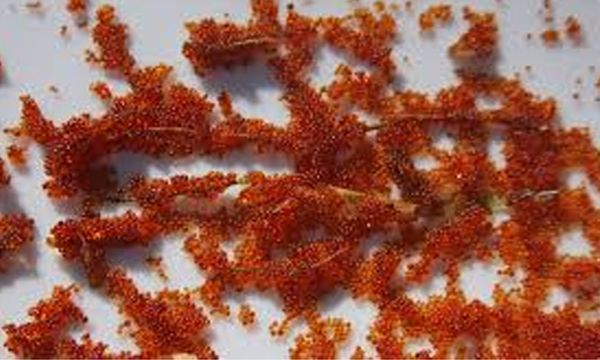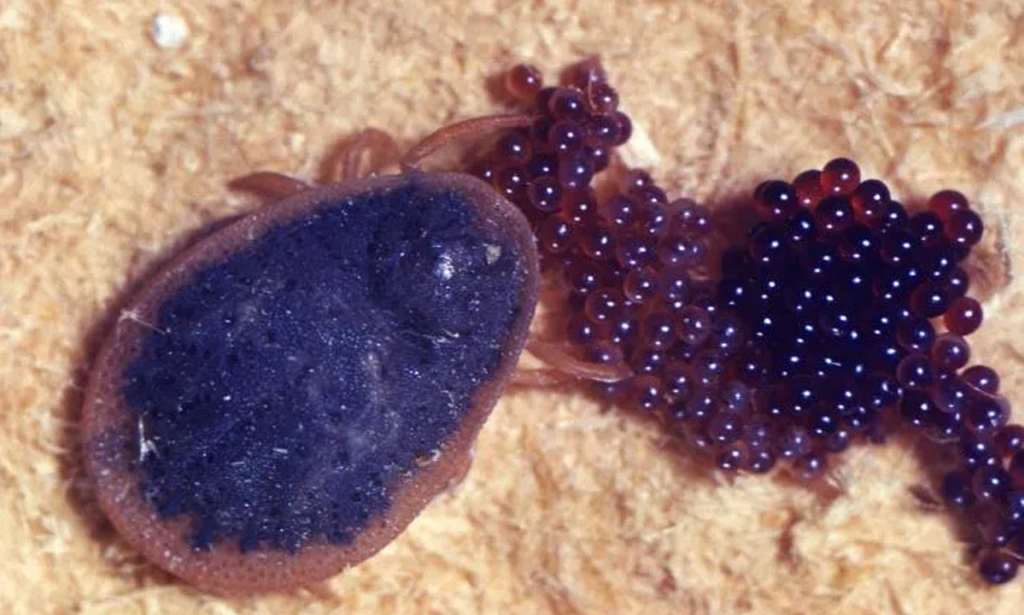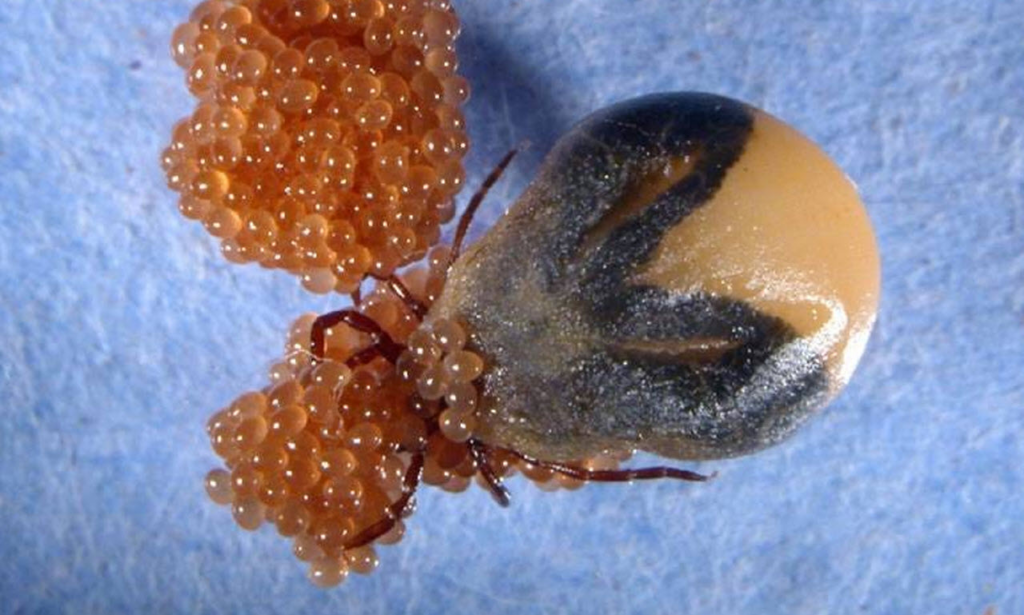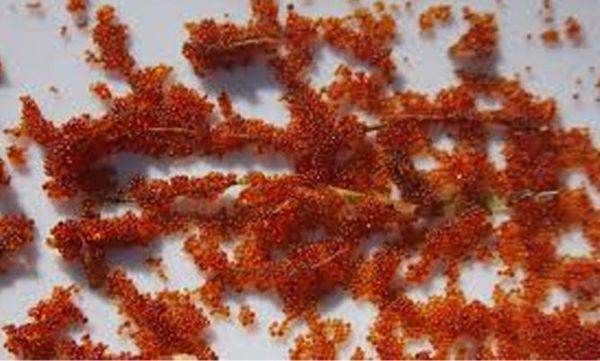There may be lurking dangers in your backyard, and it’s crucial to be able to identify them. Some of these dangers come in the form of tiny eggs, which could introduce various diseases to you and your family.

Ticks, for example, are not just a nuisance but also carriers of diseases like Lyme disease and Rocky Mountain spotted fever. If you spot tick eggs in your yard, immediate action is essential. Here’s how you can identify them:

Tick eggs are incredibly small, measuring about 0.5 mm each, which is similar in size to a poppy seed. They are usually oval-shaped and appear either white or translucent in color.
Typically, tick eggs are laid in clusters that attach to vegetation or leaf litter. As they mature and approach hatching, the eggs can take on a color similar to that of the adult tick species.

Handling tick eggs with caution is crucial because they can hatch into larvae and spread diseases. In such cases, it is recommended to involve a professional pest control expert who understand the most effective tick control methods.
If a tick is already attached to your skin, you can use tweezers to grab it near the point of attachment and gently pull until it eventually detaches. Proper disposal is important, so flush the tick down the toilet.

To keep ticks at bay, especially those that carry Lyme disease (such as deer ticks), here are some preventive measures:
Remove tulips, azaleas, or hostas from your yard to discourage deer and other wildlife from entering your property.
Plant natural tick repellents like Rosemary, mint, or chrysanthemums. These herbs can help keep ticks away.
Take care of your lawn by regularly mowing it. Removing leaf piles and debris from the yard will eliminate potential areas for ticks to lay their eggs.
Moreover, consider using tick tubes or tick repellents as additional options for controlling ticks. Rough garden beds can also make it difficult for ticks to thrive.
In conclusion, it’s important to put in the effort to prevent ticks from becoming a problem. By taking these measures and seeking professional assistance when necessary, you can ensure the safety of your family in and around the yard. Stay vigilant and protect your loved ones!





